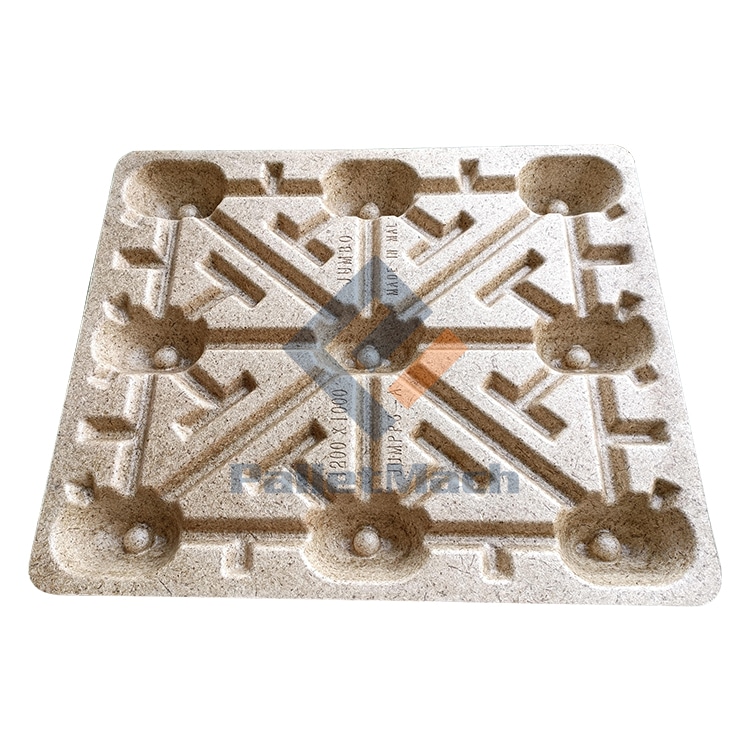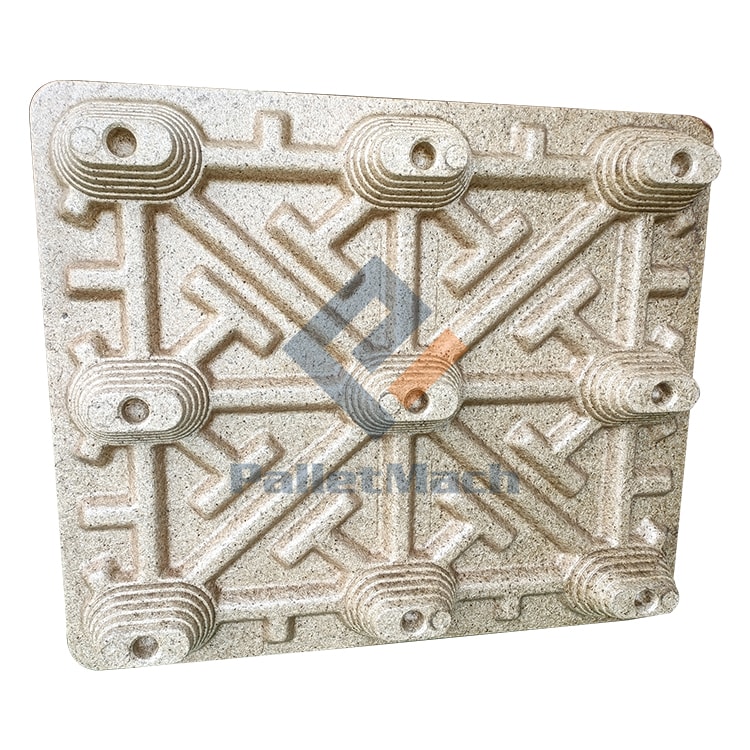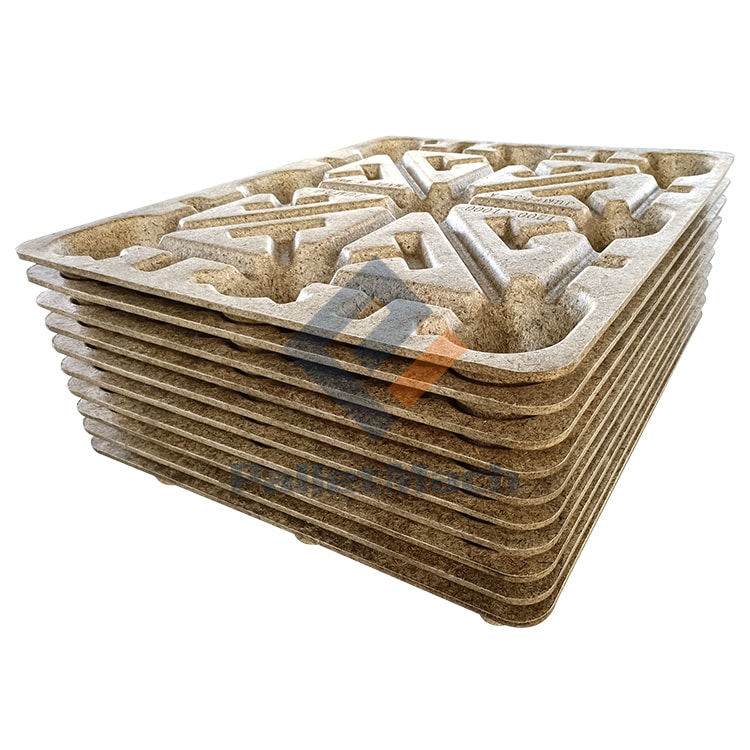Making molded wood pallets from scrap wood can be quite cost-effective, especially when utilizing waste materials like wood chips, sawdust, or wood shavings that would otherwise go to waste. Here’s a breakdown of the factors contributing to the cost-effectiveness:
1. Raw Material Costs
- Availability of Scrap Wood: If your supply of scrap wood is abundant and inexpensive, the raw material costs are minimized. Since this process recycles wood waste, it’s generally more affordable than using virgin materials.
- Sourcing and Transportation: If scrap wood needs to be transported over long distances, it could increase costs. Locally sourced wood waste improves cost-effectiveness.
2. Manufacturing Process
- Energy Consumption: The process of chipping, drying, mixing with adhesives, and molding scrap wood into molded wood pallets involves energy costs, especially for drying and pressing.
- Machinery Costs: The initial investment in compressed pallet machine can be high, but once set up, these machines are efficient, and their cost can be amortized over large production runs.
- Adhesive Costs: The glue used to bind wood particles is an additional material cost, but these adhesives are generally low-cost in bulk.
3. Labor and Overhead
- Automation: A highly automated process can reduce labor costs significantly. However, more manual setups will require labor, increasing operational costs.
- Maintenance and Repair: The long-term maintenance of equipment and facility costs need to be factored in, though these are generally low once operations are streamlined.
4. Durability and Market Value
- Product Quality: Molded wood pallets are durable, lightweight, and often more uniform in size and shape than traditional wood pallets. They may have a lower market value compared to plastic pallets, but they are still an attractive option for businesses looking for a cheaper alternative.
- Market Demand: There’s a demand for eco-friendly and recycled materials, and molded wood pallets fit this niche, potentially commanding a premium over traditional wooden pallets in certain markets.
5. Environmental Benefits and Incentives
- Reduced Waste and Carbon Footprint: Using waste wood helps reduce landfill waste, which could result in environmental subsidies or tax breaks in some regions.
- Sustainability Appeals: Many companies prioritize sustainability, which could increase demand for products made from recycled materials.
Molded wood pallets made from scrap wood can be cost-effective due to lower raw material costs and energy-efficient manufacturing processes. The overall cost-effectiveness depends on factors like local material sourcing, automation, and market demand. When produced at scale, they are a cheaper and environmentally friendly alternative to virgin wood or plastic pallets.
Post time: Oct-15-2024




